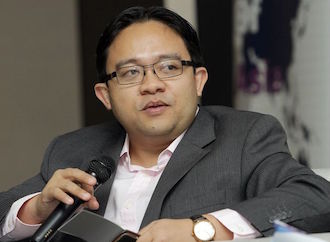It’s not just about winning seats

While many have commented on PAS as a political party, PAS sees itself primarily as an Islamic movement. For PAS, its actual roles are divided into three: propagating Islam (da’wah), educating members (tarbiyah) and taking part in politics (siyasah). Hence being a political party is only one-third of its activities and it is not the sole priority.
Wan Saiful Wan Jan, The Star
THE Islamic Party of Malaysia (PAS) is being attacked by many quarters these days. Perhaps the biggest criticism is that they have betrayed some of those who voted for Pakatan Rakyat in GE13.
This criticism is understandable. PAS benefitted tremendously from being in Pakatan Rakyat (which was succeeded by Pakatan Harapan in 2015). They would not have anywhere near the number of seats they have today if not for the partnership.
Take PAS’ experience in Johor, for example. They have been irrelevant in the state since the 1950s but they won two seats in 2008, thanks to DAP and PKR supporters.
The same occurred in GE13, when PAS won four Johor state seats, all in mixed areas where ethnic Chinese formed between 40% and 50% of the electorate. They voted for PAS to show support for either DAP or PKR.
In fact, in constituencies with a large Malay population, PAS lost to Barisan Nasional (BN) with a relatively large majority. This implies that PAS failed to win support even from the Malays in that state.
It was the non-Malays who helped them win. This is generally true in all states other than Kelantan and Terengganu.
Since PAS today is no longer in the formal opposition pact, it is unlikely that it will enjoy the same level of support from the non-Malays. I suspect Chinese voters, especially, would not even go near PAS in the upcoming GE14.
PAS, however, seems bent on going it alone. If it follows this strategy, it will force three-cornered fights with BN and Pakatan in many constituencies. In such a situation, PAS will likely split the Malay non-BN votes, thereby creating an advantage for BN and weakening Pakatan.
Many assume that the beneficiary of the three-cornered fights would automatically be Umno. This is wrong. Other BN parties may benefit too.
I have not done the math for all states, but in Johor alone there are nine state seats where PAS’ presence may help MCA. Out of the 18 state seats won by Pakatan in GE13, five were won with a majority of less than 2,000 votes, and another eight with a majority of between 2,000 and 4,000 votes. These 13 are the risky seats for Pakatan.
Of the 13 seats, nine are currently held by DAP after it defeated MCA. Of course, issues such as voter turnout and the willingness of Chinese voters there to return to BN will be important factors.
But if PAS were to contest in these nine seats, it would reduce Malay votes for DAP and the only potential beneficiary is MCA.
The irony is, PAS has almost no chance of winning any of these seats. If it insists on forcing three-cornered fights, it will have to work very hard but the electoral benefit to the party is likely to be zero.
Nevertheless, winning seats has never been the main motivation for PAS. Many commentators sneer when PAS leaders say that winning seats is not everything for them. But I think this is indicative of how shallow our understanding of PAS is.
While many have commented on PAS as a political party, PAS sees itself primarily as an Islamic movement. For PAS, its actual roles are divided into three: propagating Islam (da’wah), educating members (tarbiyah) and taking part in politics (siyasah). Hence being a political party is only one-third of its activities and it is not the sole priority.
Winning elections is not PAS’ endgame. The ultimate aim is to obtain God’s blessings through the work done to win, not the win itself.
This is not easily grasped by those analysing the party using a purely secular lens, as this is an issue of religious conviction and faith. If we were to exclude faith from the analysis, we would never be able to understand the party properly.
Today as I meet PAS members in various parts of the country, I can sense that the sentiment is very much alive among them. They do have a clear sense of purpose. But to see that purpose, you need to understand PAS’ worldview first.
Otherwise you will completely miss the full picture because it cannot be measured by how many seats are won in elections.
Of course, interest in seats exists too. But this is not its raison d’etre and many of its activists would rather lose than sacrifice what they see as key principles.
This is why, even though I feel PAS will perform poorly in GE14, I still think that the party will continue to be an important player in the country for the foreseeable future.
Since its founding in 1951, PAS has always been a strong influence on the country, even when it had a tiny number of seats. That influence will remain, regardless of its electoral performance in GE14.
Wan Saiful Wan Jan is chief executive of the Institute for Democracy and Economic Affairs and Visiting Senior Fellow at ISEAS-Yusof Ishak Institute, Singapore. The views expressed here are entirely the writer’s own.

